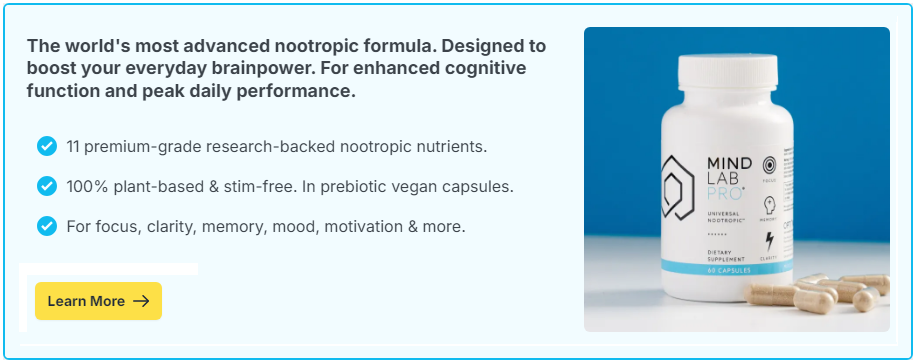
Legal professionals operate in one of the most high-stakes, mentally demanding industries in the world. Whether working as attorneys, paralegals, judges, or legal researchers, individuals in the legal field must balance enormous workloads, tight deadlines, and constant cognitive processing—all while maintaining impeccable organization and accuracy.
With court appearances, client meetings, contract negotiations, and document reviews demanding constant attention, the ability to focus and stay organized is paramount. However, the relentless pace and high-pressure environment can lead to mental fatigue, stress, and diminished productivity.
Contents
The Cognitive Demands of the Legal Profession
Success in the legal field requires more than just legal knowledge—it demands exceptional cognitive endurance, mental agility, and stress resilience. Below are the primary cognitive challenges legal professionals face daily:
Managing Large Volumes of Information
Attorneys and legal professionals must absorb vast amounts of information, from case law and contracts to statutes and legal precedents. The ability to retain and recall critical details under pressure is essential.
Maintaining Focus During Long Work Hours
Legal work often requires extended periods of deep concentration, whether drafting briefs, analyzing contracts, or preparing for trials. Distractions can significantly impair efficiency and accuracy.
Decision-Making Under Pressure
Legal professionals frequently make high-stakes decisions with significant consequences. A lapse in judgment or oversight can have serious legal, financial, and reputational repercussions.
High Levels of Stress and Burnout
The pressure to meet deadlines, win cases, and satisfy demanding clients creates chronic stress, which can lead to cognitive fatigue, emotional exhaustion, and burnout.
Organizational Overload
Juggling multiple cases, managing legal documents, coordinating court schedules, and tracking deadlines require exceptional organizational skills.
Verbal and Written Communication Excellence
Strong verbal and written communication skills are critical for persuading judges, negotiating with opposing counsel, and drafting precise legal documents.
How to Maintain Focus in High-Stress Legal Environments
Given these cognitive challenges, developing strategies to maintain focus is crucial. Here are some of the most effective techniques for enhancing concentration and mental clarity:
Implement Deep Work Sessions
Set aside uninterrupted blocks of time to focus on critical legal tasks. Use techniques such as the Pomodoro Technique (25-minute work intervals with short breaks) or time-blocking to structure your day effectively.
Minimize Distractions
Limit interruptions by silencing notifications, setting clear boundaries for meetings, and using productivity apps to block distracting websites during deep-focus work.
Prioritize Sleep for Cognitive Recovery
Sleep deprivation impairs cognitive function, memory retention, and decision-making. Aim for at least 7–9 hours of quality sleep to enhance mental clarity and focus.
Exercise for Cognitive Performance
Regular physical activity increases blood flow to the brain, improves stress resilience, and enhances problem-solving abilities—critical benefits for legal professionals.
Practice Mindfulness and Stress Reduction Techniques
Mindfulness meditation, deep breathing exercises, and yoga can help reduce anxiety, enhance focus, and improve overall emotional stability.
Optimize Nutrition for Brain Health
A brain-healthy diet rich in omega-3 fatty acids, antioxidants, and lean proteins can support cognitive function and energy levels.
How to Stay Organized in a Fast-Paced Legal Career
Organization is a cornerstone of legal success. Without effective systems, legal professionals can become overwhelmed and prone to mistakes. Here’s how to stay organized:
Use Legal Practice Management Software
Modern legal software solutions help manage case files, track deadlines, and automate document organization, reducing cognitive load.
Create a Priority System
Use the Eisenhower Matrix to categorize tasks based on urgency and importance, ensuring that high-priority cases receive immediate attention.
Maintain a Structured Filing System
Whether digital or physical, keeping legal documents, contracts, and research well-organized prevents unnecessary delays and frustration.
Leverage Checklists and Templates
Checklists for legal processes and document templates streamline repetitive tasks, saving time and improving accuracy.
Plan Your Week in Advance
Set clear goals for the week, allocate time for high-priority cases, and leave buffer periods for unexpected legal challenges.
Delegate Tasks When Possible
Paralegals, legal assistants, and junior attorneys can handle administrative tasks, allowing senior attorneys to focus on high-value legal work.
The Role of Nootropics in Enhancing Focus and Organization
Nootropics, also known as cognitive enhancers, are supplements designed to improve memory, focus, mental endurance, and stress resilience. Many legal professionals use nootropics to enhance cognitive performance and sustain high levels of productivity.
L-Theanine + Caffeine
This combination provides smooth, sustained focus without the jittery side effects of caffeine alone, making it perfect for long work sessions.
Citicoline
Citicoline enhances memory retention, attention span, and cognitive processing speed, helping legal professionals retain legal knowledge more effectively.
Rhodiola Rosea
A stress-reducing adaptogen, Rhodiola Rosea helps legal professionals remain calm and focused under pressure.
Bacopa Monnieri
Bacopa Monnieri improves long-term memory and cognitive processing, essential for legal research and case analysis.
L-Tyrosine
Boosts dopamine levels, enhancing focus, motivation, and stress resilience—critical traits for high-pressure legal work.
Ashwagandha
An adaptogenic herb that reduces cortisol, helping legal professionals manage stress while maintaining cognitive clarity.
Omega-3 Fatty Acids
Found in fish oil, omega-3s support cognitive function, memory recall, and mental clarity—important for sustaining focus throughout demanding workdays.
Phenylpiracetam
Enhances problem-solving ability, reaction speed, and mental endurance, making it beneficial for fast-paced legal environments.
How to Integrate Nootropics into a Legal Professional’s Routine
To maximize the benefits of cognitive enhancers, legal professionals should follow a structured approach:
- Start with a single nootropic: Introduce one supplement at a time to assess its effectiveness.
- Use nootropics strategically: Take Modafinil or Citicoline in the morning for peak focus.
- Combine with productivity techniques: Pair nootropics with deep work sessions for maximum impact.
- Maintain a brain-healthy lifestyle: Exercise, sleep, and nutrition play a vital role in cognitive performance.
Legal professionals face immense cognitive demands, requiring exceptional focus, organization, and stress management. By implementing productivity strategies, optimizing organization systems, and incorporating cognitive enhancers, attorneys and legal professionals can sustain peak performance in high-pressure environments.
With the right combination of structured habits, nootropics, and mental resilience techniques, legal professionals can navigate complex cases, meet deadlines, and maintain their edge in the demanding legal industry.

